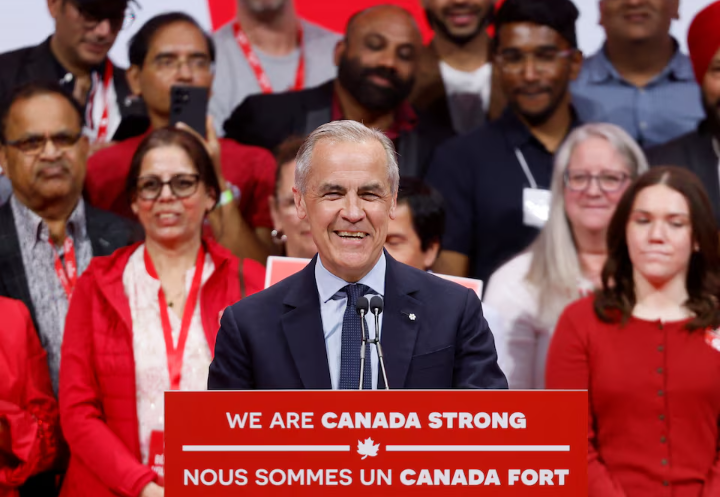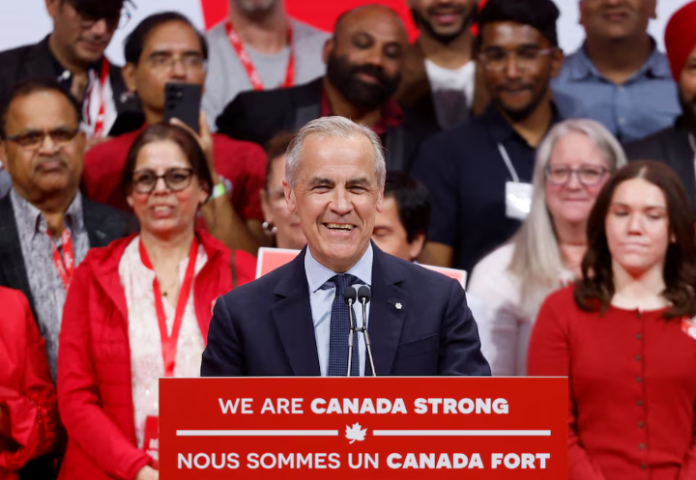In a high-stakes Canadian federal election that saw global tensions and economic uncertainty influence voters, Prime Minister Mark Carney’s Liberal Party has secured another term — but once again, it’s a minority government.
Out of 343 available seats in the House of Commons, the Liberals won 167, narrowly missing the 172 required for a majority. The Conservative Party followed closely with 145 seats as votes continue to be finalized.
Addressing jubilant supporters in Ottawa, Carney delivered a sobering message: “Our old relationship with the United States, a relationship based on steadily increasing integration, is over.” He described the post-World War II trade system, long anchored by U.S. leadership, as effectively finished. “These are tragedies,” Carney said, “but it’s also our new reality.”
Carney, a former central banker with experience at the helm of both the Bank of Canada and Bank of England, entered politics as a steadying force. Many Canadians were drawn to his calm demeanor and tough stance against former U.S. President Donald Trump, who reinserted himself into the campaign with threats of tariffs and suggestions that Canada should become the 51st U.S. state.
“America wants our land, our resources, our water, our country,” Carney said in his victory speech. “These are not idle threats… That will never ever happen.”
The specter of Trump’s return and his aggressive economic rhetoric played a major role in shifting voter sentiment. Shachi Kurl, president of the Angus Reid Institute, pointed out that support for the Liberals surged in the wake of Trump’s remarks, Trudeau’s retirement, and growing fears over U.S. annexation.
Although Carney didn’t win outright control, this marks a remarkable rebound for the Liberals who, just months ago, trailed the Conservatives by 20 points in the polls. The shift came after former Prime Minister Justin Trudeau stepped down, opening the door for Carney’s candidacy.

Conservative leader Pierre Poilievre admitted defeat, saying, “We didn’t quite get over the finish line.” However, his party made significant inroads, particularly around Toronto. Poilievre focused heavily on domestic issues like inflation, crime, and housing — concerns that still resonate with many voters.
Meanwhile, support for smaller parties like the New Democratic Party and Bloc Quebecois faded. NDP leader Jagmeet Singh even lost his own seat and announced plans to step down as party leader.
With another minority government in place, Canada faces a complex and uncertain future. Carney warned that difficult months lie ahead and emphasized the need for national unity in the face of external threats.
Now more than ever, Canada’s path forward will be shaped not just by domestic priorities, but by its evolving — and increasingly tense — relationship with its southern neighbor.



